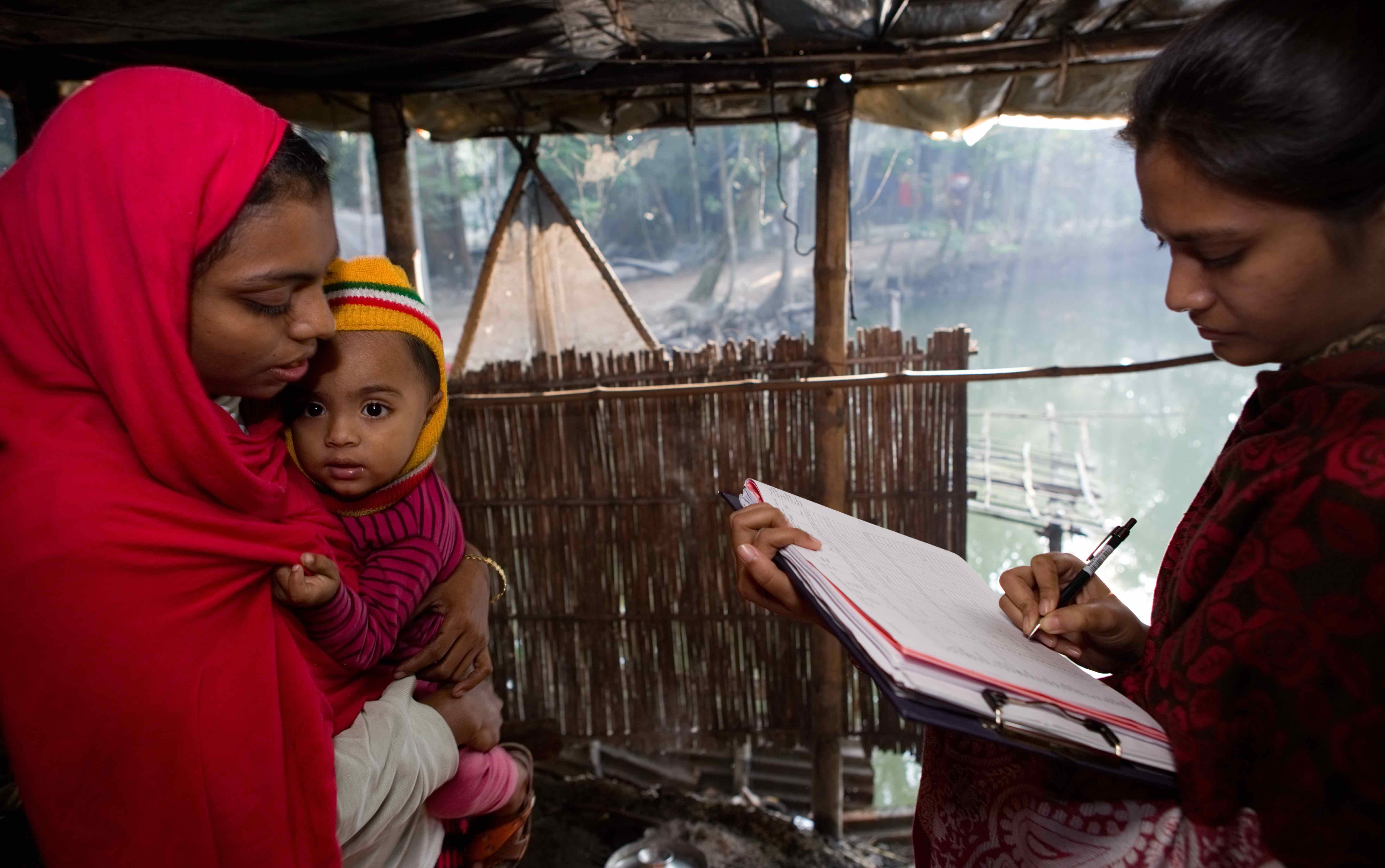Collecting and sharing data and other information publicly is crucial for researchers, policy makers, and development practitioners to identify and navigate issues, crowdsource solutions, and make relevant, timely decisions. To mark International Open Data Day 2020 (March 7), we look at—and celebrate—one example that shows the power of open data in galvanizing worldwide attention on development issues in Bangladesh.
Exploring the most comprehensive dataset in Bangladesh
The Bangladesh Integrated Household Survey (BIHS)—designed by IFPRI researchers and funded by USAID—is the country’s most comprehensive, nationally representative rural household survey. The BIHS was first conducted in 2011/2012 across 6,500 households; in 2015 and then 2018/2019, IFPRI researchers resurveyed the same households again to track changes over time.
Before BIHS, the Bangladesh government was already conducting Household Income and Expenditure Surveys and Demographic and Health Surveys every five years. But there were still knowledge gaps that existing data did not fill. One example was women’s empowerment.
Women’s empowerment was a priority in Bangladesh over a decade ago, but since it was subjective, hard to define, and thought to be impossible to measure, it was often sidelined in policies and programs. When IFPRI, the Oxford Poverty and Human Development Initiative (OPHI), and USAID developed the Women’s Empowerment in Agriculture Index (WEAI), Bangladesh became the first country to collect national empowerment data under the BIHS 2011/2012. For the first time, researchers and policymakers were able to broadly assess women’s status in Bangladesh, identify key areas where empowerment could be strengthened, set a baseline for progress, and compare with countries that collected the same data.
The BIHS also collects unique plot-level data on agricultural production and practices, individual dietary intake, and height-and-weight of all household members. These data provide valuable insights into the states of agriculture and nutrition, but other surveys rarely collect them because doing so is complex, expensive, and time-consuming. One BIHS household interview can take up to two days to complete. Finishing the whole survey—collecting data that are statistically representative nationally of rural Bangladesh, of all seven administrative divisions of Bangladesh, and of the USAID Feed the Future Zone of Influence—takes between four and five months.
National datasets with global impacts
But the hard work has paid off. Since the first two BIHS datasets were published online, they have been widely used. The first attracted over 73,000 downloads, and with the long-anticipated release of the two-round BIHS 2015, that number tripled to 216,000 downloads across six continents for the second dataset. Over 130 publications have tapped into the BIHS data, which explore varying research questions—from intrahousehold nutritional inequities to how the perceptions of natural hazards influence migration decisions among ethnic minority farmers in rural Bangladesh.
The unprecedented global demand for the BIHS datasets has spurred data-driven innovation in Bangladesh and beyond, with uptake by development practitioners to graduate students to researchers from the World Bank and other institutions. Join us this year in celebrating International Open Data Day by downloading the first two rounds of the BIHS datasets below!
Akhter Ahmed is the Country Representative for IFPRI-Bangladesh and Senior Research Fellow for the Poverty, Health, and Nutrition Division at IFPRI. Julie Ghostlaw is the Country Program Manager for the Bangladesh Policy Research and Strategy Support Program (PRSSP). This post also appears on the Bangladesh microsite.







